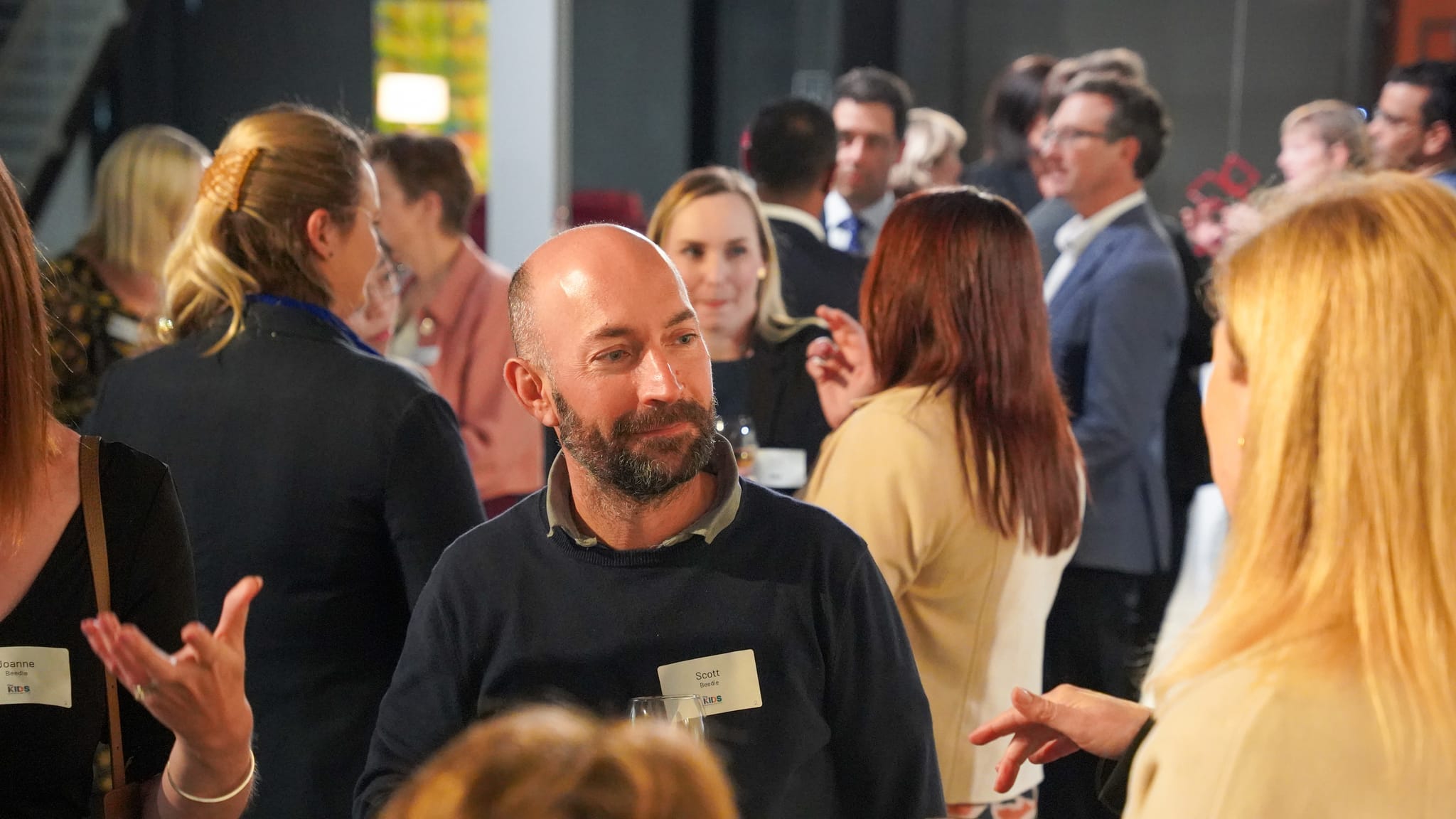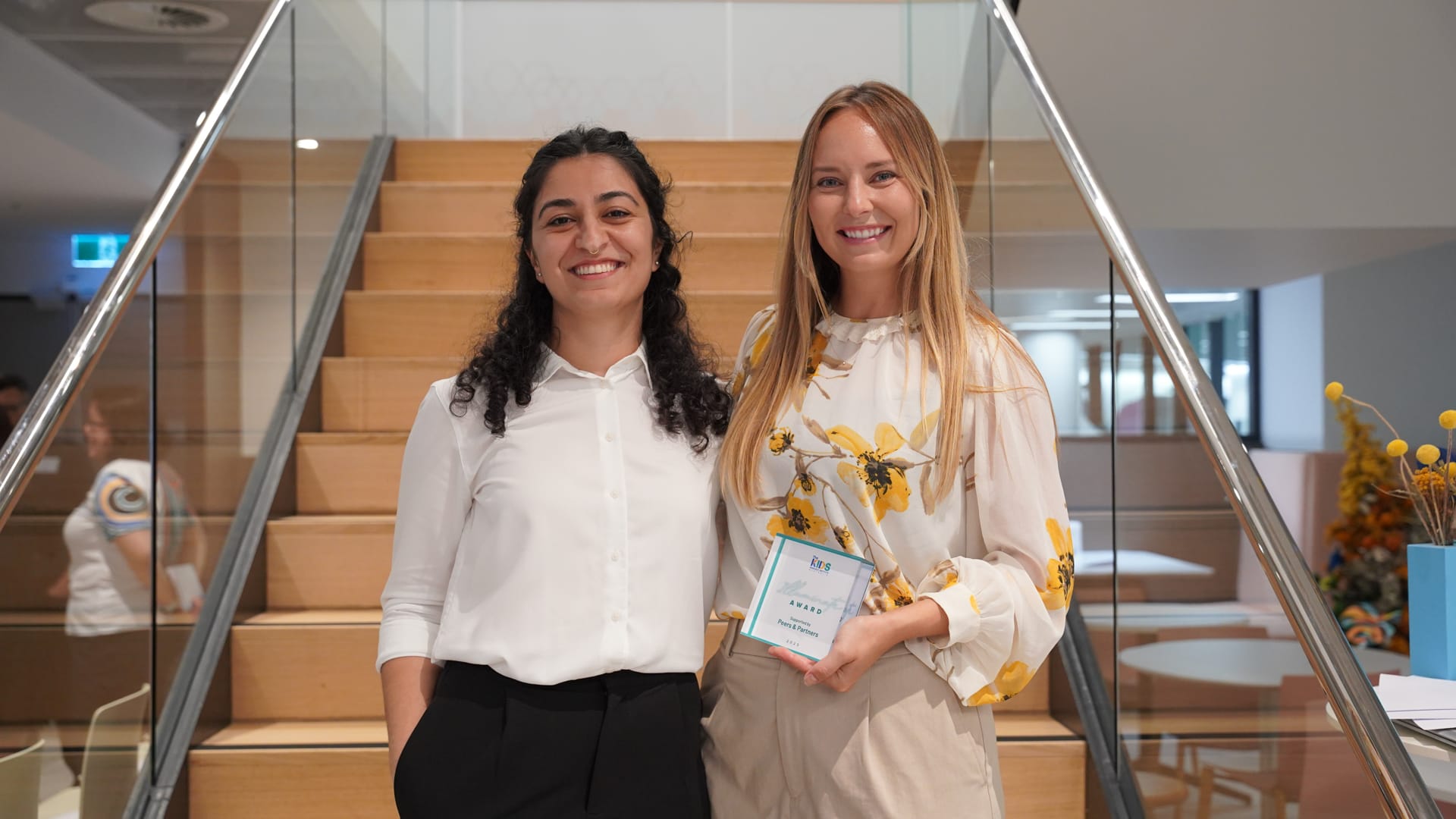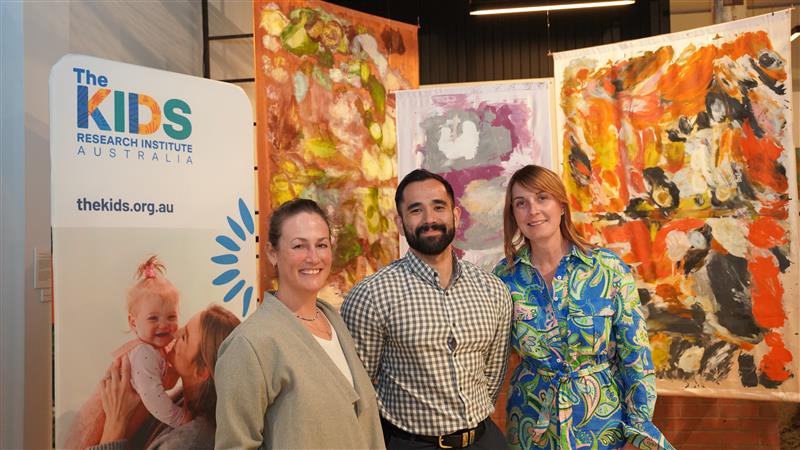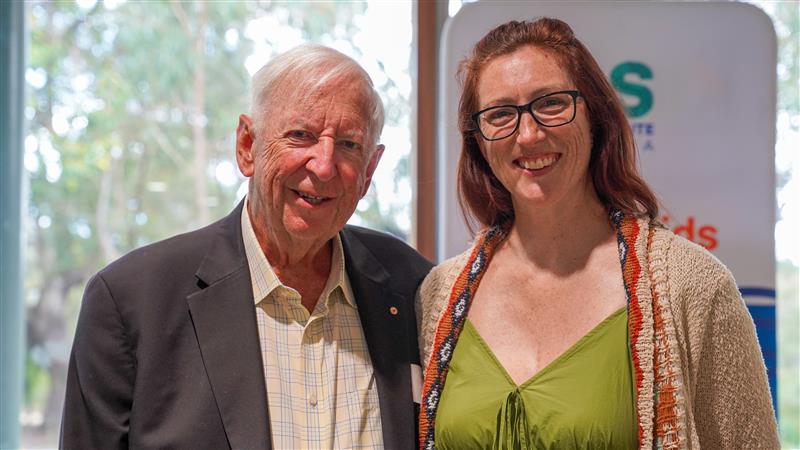This event has ended. Keep an eye on this page for the next Illuminate Sundowner event details.
Event details
Thursday 11 September 2025
6pm arrival for a 6:30pm start*
Holmes à Court Gallery @ no.10
10 Douglas St, West Perth
*If joining the exclusive curator tour, please arrive by 5:30pm – the tour starts at 5:45pm sharp.
Register for the eventAbout Illuminate Awards
Launched in 2021 by the Hon Julie Bishop, then Chair of The Kids Board, the Illuminate Awards empower our best and brightest researchers at a pivotal time in their careers. This powerful initiative harnesses the transformative power of philanthropy, connecting generous supporters with brilliant minds to drive life-changing discoveries in child health.
Illuminate is more than an award—it’s a celebration of potential, a catalyst for progress, and a commitment to a healthier future for children everywhere.
Learn more about Illuminate Awards
Meet the researchers
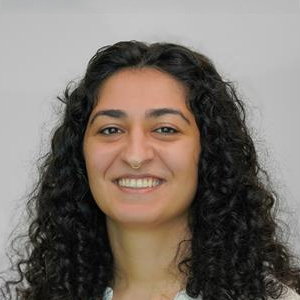
Dr Zahra Abbas
Project title: Designing immunotherapies for children with brain tumours to reduce life-long side effects
Research area: Brain Tumour Research
There is an urgent unmet need to develop treatments for childhood brain cancers that are both more effective and less damaging to the developing brain. Current therapies have failed to improve survival outcomes for children with high-risk tumours over recent decades.
Moreover, these existing therapies are aggressive and result in life-long side effects in survivors. While immunotherapies have minimised toxicity and improved outcomes in adult cancers, they have so far failed in children’s brain cancers.
In her research, Zahra has uncovered vast differences in how the immune system of a child responds to cancer compared to an adult’s immune system. These differences have wide-ranging implications in the design of immunotherapies for children’s cancers going forward.
In order to design immunotherapies for children with brain tumours, it is crucial to understand how the immature immune system of the paediatric brain responds to cancer treatments such as radiotherapy.
By understanding these immune responses, Zahra will identify immune cells which can be harnessed to synergise with existing clinical approaches. This will facilitate rapid translation of treatments to clinical trials and improve outcomes for children.

Dr Jua Iwasaki
Project title: Stopping Strep throat in its track to prevent severe illness in kids
Research area: Strep A Pathogenesis and Diagnostics
Strep A is one of the deadliest bugs you’ve never heard of, responsible for the death of 500,000 people every year. While most Strep A infections cause mild illnesses of the throat and skin, some individuals are more susceptible to severe illnesses including sepsis, flesh-eating disease and chronic heart disease.
Why some individuals suffer severe and life-threatening effects of Strep A is a central focus in Jua’s research. Understanding the interaction of Strep A with human tonsils (the first site of infection in the throat) is key to informing and developing improved treatments and vaccines to prevent the infection in the first instance.
Jua’s work has already supported promising vaccine targets for Strep A, however further scientific evaluation is needed on how the bacterium binds to the tonsils and how the immune system responds to the infection. Through investigating the individual differences in the immune response to the bug and promising vaccines, Jua’s research aims to achieve pre-clinical vaccine development and reduce the considerable illness and death due to Strep A in children.

Dr Sonia McAlister
Project title: Whooping cough immunity: optimising vaccines for infants and beyond
Research area: Vaccine Trials and Immunisations
Whooping cough (pertussis) remains one of Australia’s most poorly controlled vaccine-preventable diseases, with more than 55,000 cases last year - the largest outbreak on record.
Ongoing outbreaks and tragic stories, like that of Riley Hughes, a newborn who lost his life to whooping cough at just 32-day-old, remind us that our current vaccines and schedules must be improved. Driven by their grief, Riley’s parents helped introduce maternal immunisations in Australia which now allow mothers to be vaccinated during pregnancy to pass on protection to their newborns.
During her PhD, Sonia developed tests to measure vaccine-specific antibodies for diseases like whooping cough, pneumococcal disease, hepatitis B, and COVID-19. Applying these tests to clinical trials, Sonia identified key differences in immune responses based on vaccine timing, dosage, and formulation – critical insights for improving vaccine schedules.
Now, Sonia is dedicated to refining how vaccines are delivered to maximise community protection against deadly infectious diseases, particularly whooping cough. Her research also explores how vaccines interact with the immune system to enhance effectiveness. By optimising immunisation programs, she aims to prevent unnecessary illness and loss, ensuring every child gets the healthiest start in life.

Thomas Nevill
Project title: Improving support for children with Specific Learning Disabilities through early diagnosis
Research area: Human Development, Disability and Community Wellbeing
Children with Specific Learning Disabilities (SLD), including dyslexia, dysgraphia and dyscalculia, are at increased risk of school dropout, anxiety and depression. Early diagnosis can help prevent poor mental health and educational outcomes, however, this is difficult to access for many families despite SLDs impacting two in every three children in Australian classrooms.
Driven by his personal experiences, Thomas’s research focuses on developing a program to enhance the well-being of children with SLDs.
Through examining the experiences of children and families in obtaining an SLD diagnosis he aims to understand how parents seek a diagnosis, and their satisfaction with the process; explore barriers and facilitators to access a diagnosis; investigate the impact on children’s mental health when they receive a diagnosis; and co-design resources to help kids when they are diagnosed.
The project will lay the groundwork for future initiatives Thomas plans to lead to improve diagnostic processes and co-design support for young people with SLDs.

Dr Renee Ng
Project title: Combating antimicrobial resistance in children: Developing phage therapy as a safe, effective, and sustainable treatment
Research area: Antimicrobial Resistance (AMR)
The World Health Organisation predicts that by 2050, antimicrobial resistance (AMR) will cause more than 10 million deaths each year. Dr Renee Ng is actively involved in global efforts to develop safe alternative treatments to antibiotics, aiming to prevent a return to an era when bacterial infections often resulted in death.
Through her work in bacteriophage therapy, Renee is making a significant impact. Bacteriophages, or phages, are natural viruses that specifically target and kill bacteria, offering a promising solution to AMR. Her current work has reduced the time it takes to match the right phage to a bacterial infection by as much as 30 hours—an essential improvement for critically ill patients. Additionally, she has discovered that combining phages with other therapeutic compounds can effectively treat infections while minimising the toxic side effects associated with high doses of antibiotics.
Renee’s vision is to advance her work by making phage therapy a routine treatment option within the public health system. She aims to develop sustainable, safe, and accessible treatment solutions to protect patients at risk of AMR and mitigate its devastating impact. Her goal is to create a sustainable treatment option that is safe and accessible, utilising complementary therapy with phages.
Register for the event

